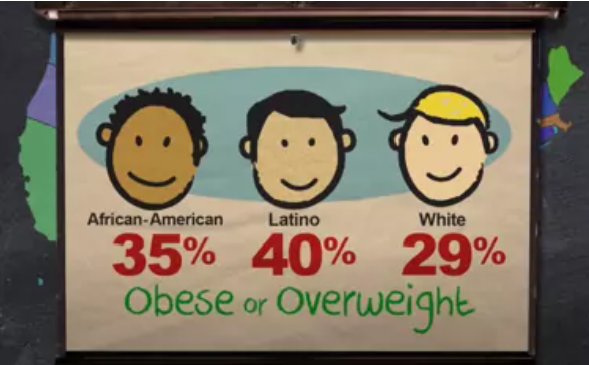Bombarded by food insecurity, poor sleep habits, fast food and too much screen time, more American children between the ages of 2 and 4 are being diagnosed with severe obesity, which “is strongly associated with high blood pressure, dyslipidemia, prediabetes, and early mortality,” a new study finds.
Bombarded by food insecurity, poor sleep habits, fast food and too much screen time, more American children between the ages of 2 and 4 are being diagnosed with severe obesity, which “is strongly associated with high blood pressure, dyslipidemia, prediabetes, and early mortality,” a new study finds.
The study, “Trends in Severe Obesity Among Children Aged 2 to 4 Years in WIC: 2010 to 2020,” was published Monday in the journal Pediatrics.
Severe obesity is defined as having a sex-specific body mass index for one’s age greater than or equal to the 95th percentile on the U.S. Centers for Disease Control and Prevention growth charts.
In the study, a team of researchers led by Lixia Zhao from the CDC Division for Heart Disease and Stroke Prevention examined the prevalence and trends in severe obesity among 16.6 million children aged 2 to 4 years enrolled in the Special Supplemental Nutrition Program for Women, Infants, and Children from 2010 to 2020.
While severe obesity declined from 2.1% in 2010 to 1.8% in 2016, severe obesity increased to 2% by 2020.
“From 2016 to 2020, the prevalence increased significantly overall and among sociodemographic subgroups, except for American Indian/Alaska Native and non-Hispanic white children. The largest increases occurred in 4-year-olds and Hispanic children,” Zhao and the team noted.
In their commentary on the research titled “Severe Obesity in Toddlers: A Canary in the Coal Mine for the Health of Future Generations,” researchers Dr. Sarah C. Armstrong of Duke University and Asheley C. Skinner warned that the findings should be of “great concern” to health professionals and policymakers because “there is little understanding about what effectively treats obesity before age 6 years.”
“Severe obesity is different than milder forms of overweight and obesity; reliable and representative national data show that severe obesity in childhood is strongly associated with high blood pressure, dyslipidemia, prediabetes, and early mortality,” wrote Armstrong and Skinner.
“Thus, these new data from Zhao et al showing reversal of previous progress, with an increase in severe obesity in children aged 2 to 4 years, is a cause for great concern for policymakers, clinicians, and public health professionals.”
The researchers said addressing severe obesity will require a multifaceted approach to inspiring behavior change because multiple factors help drive the incidence of the problem.
“It is critical to note that the development of severe obesity this early in life is nearly irreversible,” the researchers argued.
“Of multiple factors considered, food insecurity (FI) (relative risk [RR] 1.32) was most strongly associated with obesity, followed by sleep duration of 1 hour a day (RR 1.22),” Armstrong and Skinner continued. “All combined, these 4 factors accounted for 43% of obesity risk in this population by age 4.5 years. Thus, effective prevention of early life obesity will need to target multiple behavioral and social drivers to be successful.”
Studies cited by the researchers show that 90% of children who develop obesity by age 3 will still have obesity by adolescence.
“Severe early-onset obesity is correlated with earlier and more severe risk for chronic disease; Lycett et al demonstrated that high BMI at age 2 is associated with increased metabolic syndrome risk score at age 11,” they noted.
Armstrong and Skinner highlighted the complex relationship between food insecurity and obesity by showing how food-insecure families tend to purchase “cheaper foods that tend to be energy-dense” but have “low nutritional value.”
“A 2022 systematic review of FI and obesity among infants and young children found an association for those experiencing multiple episodes of FI, younger age at the time of FI, and among girls,” the researchers wrote, noting that poverty and food insecurity have a strong association.
“Females at all ages are at higher risk for developing obesity in the setting of FI; the reasons for this are unclear; suggested hypotheses involve biologic and metabolic responses, or social factors, including stress and anxiety, in response to hunger and food scarcity.”
The findings suggest strategies may be explored in future research, Armstrong and Skinner wrote.
“First, the most evidence-based nutrition program aimed at preventing FI in young children is the WIC program,” the researchers added. “Although WIC participation is associated with improved child diet quality and may improve household food security, WIC has not yet demonstrated effectiveness in preventing or reversing early life obesity. One explanation is that the benefits are simply not enough.”
By Leonardo Blair, Senior Reporter
Originally published on The Christian Post
(c) The Christian Post, used with permission




